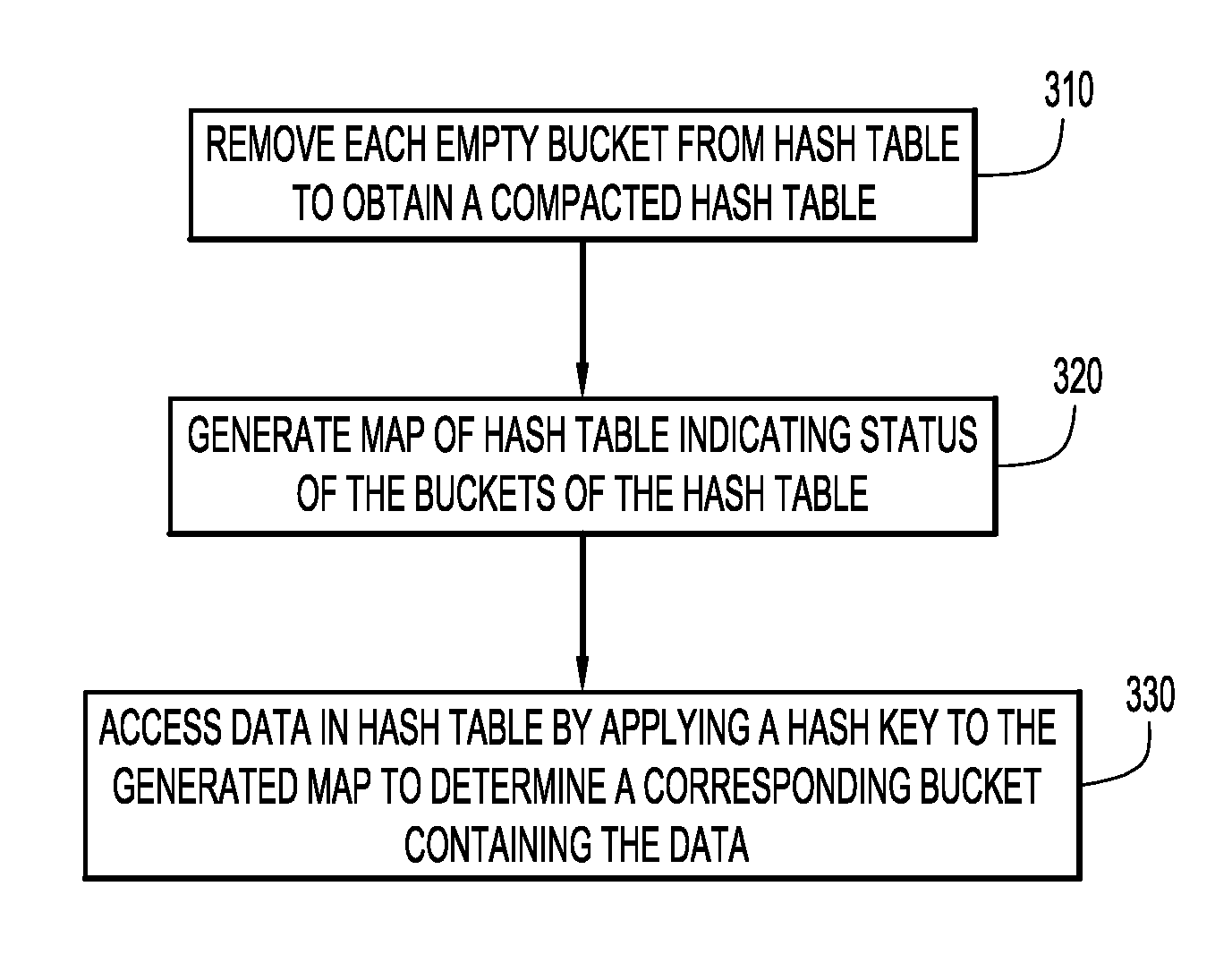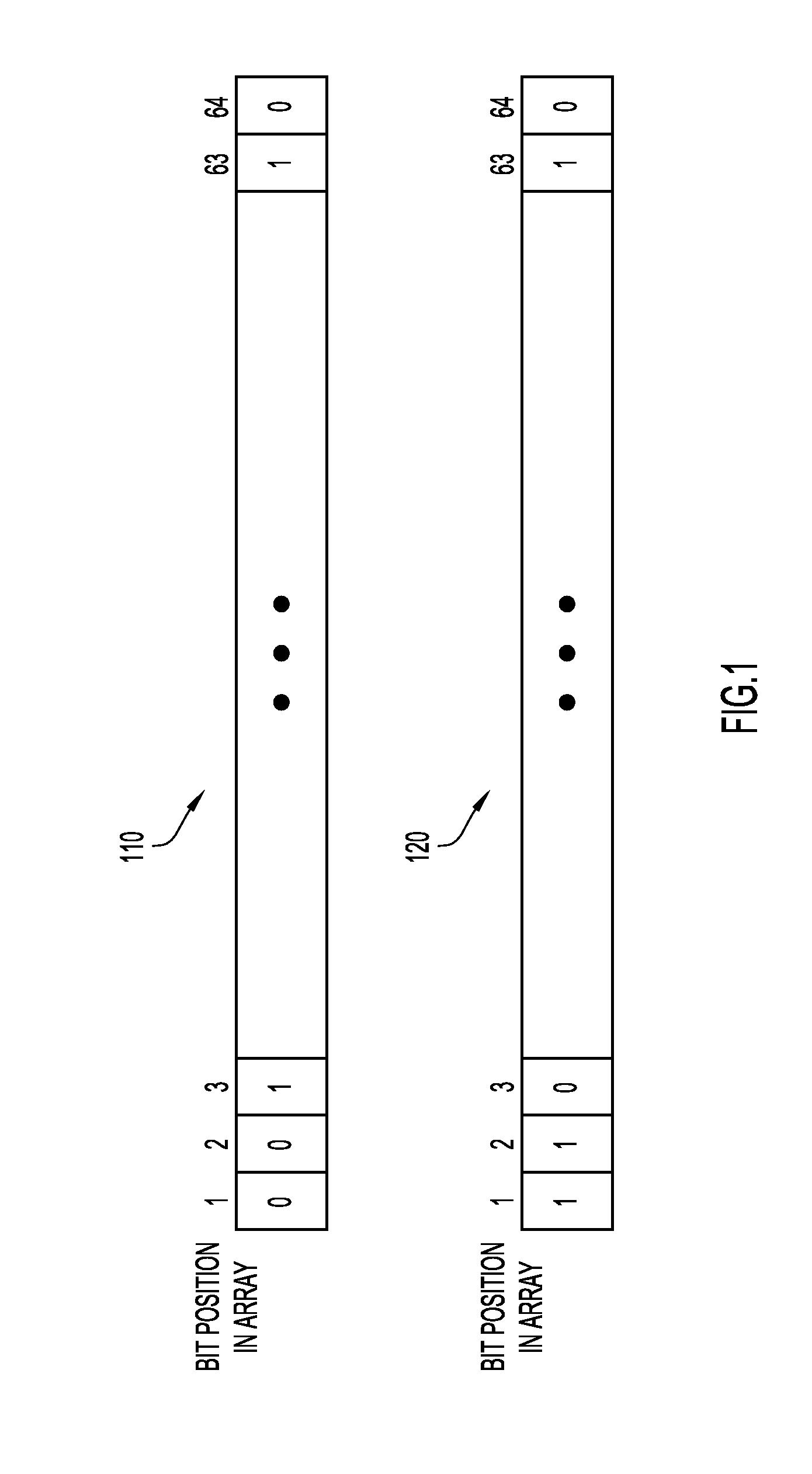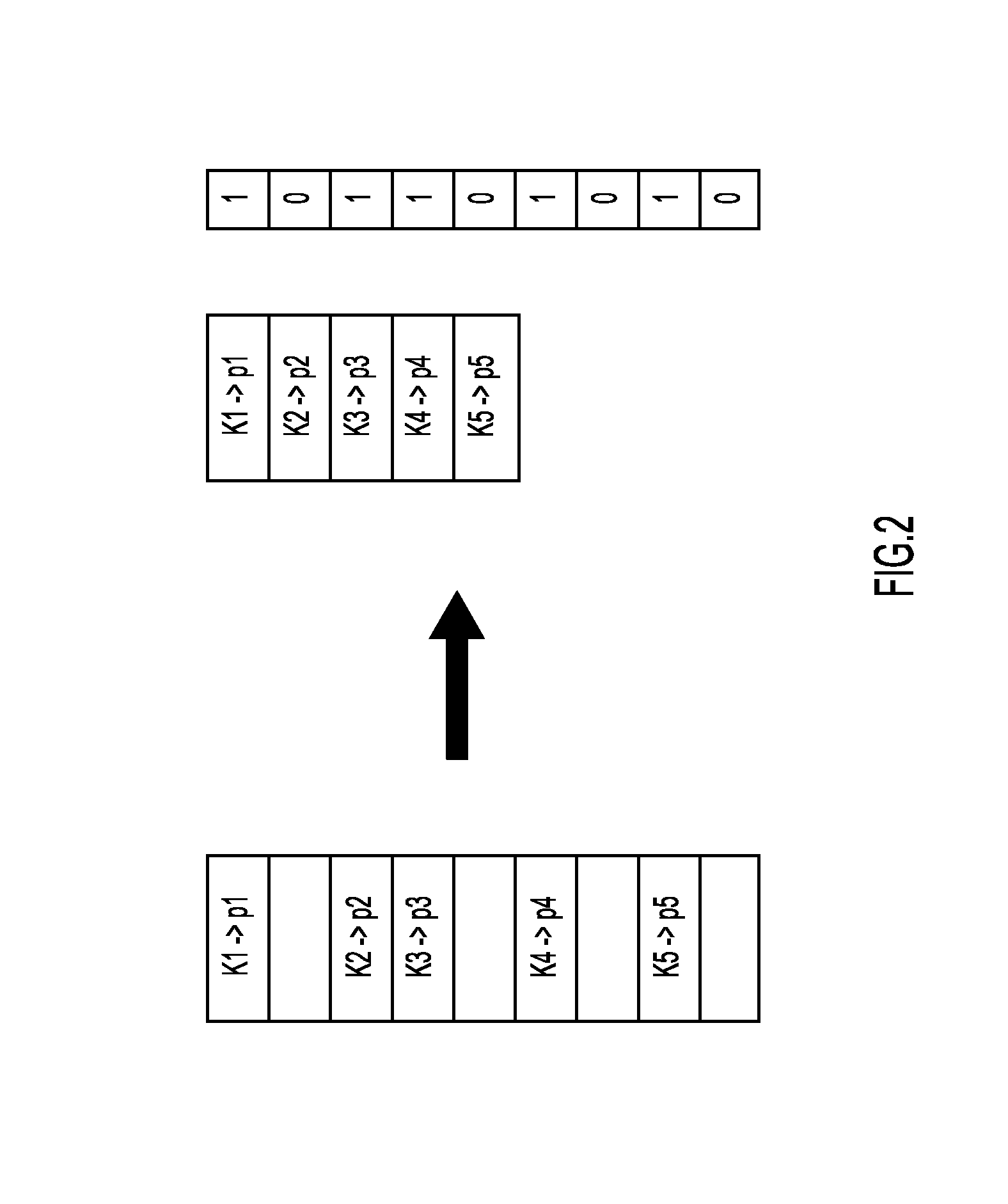Join operation partitioning
a technology of operation and partitioning, applied in the field of joint operation partitioning, can solve problems such as collision of data
- Summary
- Abstract
- Description
- Claims
- Application Information
AI Technical Summary
Benefits of technology
Problems solved by technology
Method used
Image
Examples
Embodiment Construction
[0017]Present invention embodiments operate to reduce hash collisions in a hash table to improve the performance of the hash table. Hash collisions are practically unavoidable when hashing a random subset of a large set of possible keys. By way of example, if 1000 keys are hashed into 100,000 buckets, there is a small but not insignificant chance that at least two of the keys are hashed to the same slot or bucket even assuming a uniform random distribution, thereby resulting in a hash collision. As such, collision reduction is an important part of hash table design.
[0018]Conventionally, there is a tradeoff between hash table fill factor (also referred to in the art as “load factor”) and hash collision rate. Typically, hash tables are not filled beyond about 50-60% because collision rates go up dramatically with fills beyond this amount. By having a fill rate below 50%-60%, the hash table will take up more space, and will fit lower in the cache hierarchy (e.g., as a Level 2 or Level ...
PUM
 Login to View More
Login to View More Abstract
Description
Claims
Application Information
 Login to View More
Login to View More - R&D
- Intellectual Property
- Life Sciences
- Materials
- Tech Scout
- Unparalleled Data Quality
- Higher Quality Content
- 60% Fewer Hallucinations
Browse by: Latest US Patents, China's latest patents, Technical Efficacy Thesaurus, Application Domain, Technology Topic, Popular Technical Reports.
© 2025 PatSnap. All rights reserved.Legal|Privacy policy|Modern Slavery Act Transparency Statement|Sitemap|About US| Contact US: help@patsnap.com



